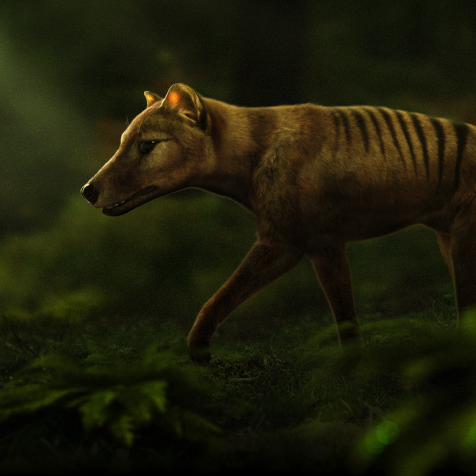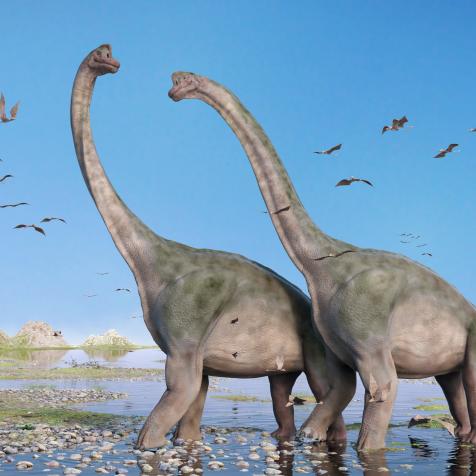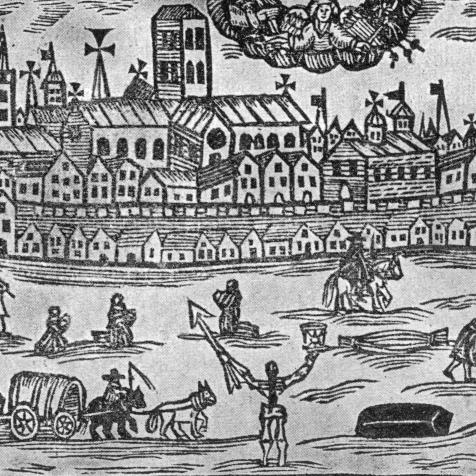
Luis Alvarez
Using What We Know to Predict the Next Pandemic
How can we predict another pandemic? Researchers are utilizing what we have learned from COVID-19 to get in front of the potential pandemics of the future.
Cambodia was able to discover its first case of COVID-19 from a Chinese national who flew in from Wuhan, the city where the illness was first identified. As a developing country, Cambodia has struggled with sickness and health, especially within the realms of malaria.
Dr. Jessica Manning, a public health researcher with the National Institute of Allergy and Infectious Diseases, has been working in Cambodia for quite some time. When COVID-19 made its way into Cambodia, she saw it as an ‘opportunity’ to join the universal effort to watch for new diseases.
In 2018, Dr. Manning learned about the “Global Grand Challenge'' from Bill and Melinda Gates Foundation, which offers researchers grants to utilize genomics to learn more about diseases in developing countries. That following year, she was awarded the grant and flown to Chan Zuckerberg Biohub, a research center in San Francisco, with three colleagues to learn how to properly use the tools.
For Cambodia, a developing country with multiple direct flights from Wuhan, the coronavirus seemed to present an especially high risk. Dr. Jessica Manning, a public health researcher, is helping the country join the global effort to watch for new diseases. https://t.co/xVaH1GTcGK
— The New York Times (@nytimes) February 16, 2021
Once Dr. Manning and colleagues returned to Cambodia, they put their training to the test and set up a project at a hospital in the town of Chbar Mon. Her goal was to ‘identify unknown pathogens.’ In order to do that, it required an approach called ‘metagenomic sequencing.' This “reads all of the genomic material in a sample and identifies all of the organisms present: helpful bacteria, common pathogens, microbes that have never been spotted before,” according to The New York Times.
To interpret the data, Dr. Manning’s lab uses ‘IDseq’, which is “a free online, open-source software package that reverse-engineers how all the short segments might fit together to form any number of genomes, and compares these with known genomes in public databases.” A great attribute that comes with IDseq is that it runs on ‘servers in the cloud.’ This allows researchers to conduct analysis remotely and for free.
When patients came in with ‘unexplained fevers,’ usual protocol was to treat them with basic antibiotics and antimalarial drugs. Now, medical professionals can take blood samples and deliver them to Dr. Manning’s lab where they run the ‘metagenomic analysis’ to better identify what’s causing the issue. Phoun Ohalla, a 13 year-old girl, had been sick for eight months with sporadic fever, chills, and nausea, but was never properly diagnosed. Her parents gave consent to allow her to participate in the project Dr. Manning was facilitating. Once her blood was drawn and results were received by Dr. Manning, she concluded she was suffering from a specific type of malaria, one that specifically targets the liver, and required a specific medication that can kill malaria hiding in the liver. Once treated, Phoun Ohalla returned to a healthy state.
The research gained from Dr. Manning’s metagenomic sequencing has propelled her to start monitoring animals in “two local wet markets, where pathogens could jump to humans.” By doing so, she hopes to further demonstrate the value found in metagenomic sequencing and how it can help better identify infectious diseases. Dr. Farhad Imam, a program officer who helped choose Dr. Manning’s proposal to receive a grant, explained, “the faster we find out what it is, the faster we can build the tools to defeat it.”
More about COVID-19
Dr. Anthony Fauci and Others Discuss The Race for the Vaccine and Conquering COVID
THE VACCINE: CONQUERING COVID premieres Thursday, February 18 at 10p on Discovery and streaming on discovery+.
NY Nurse First in the US to Receive Pfizer Vaccine
COVID-19 vaccine administration is underway in the United States. Sandra Lindsay, an ICU Nurse at Long Island Jewish Medical Center in Queens, New York, became the first American to get vaccinated in a non-trial setting.
How COVID-19 Could Be Good News For Endangered Wildlife
Trafficking of wild animals around the world may be coming to a close, thanks to the novel coronavirus pandemic that is sweeping the globe.
For more on the fight to defeat the current pandemic, you can stream THE VACCINE: CONQUERING COVID on discovery+.





















